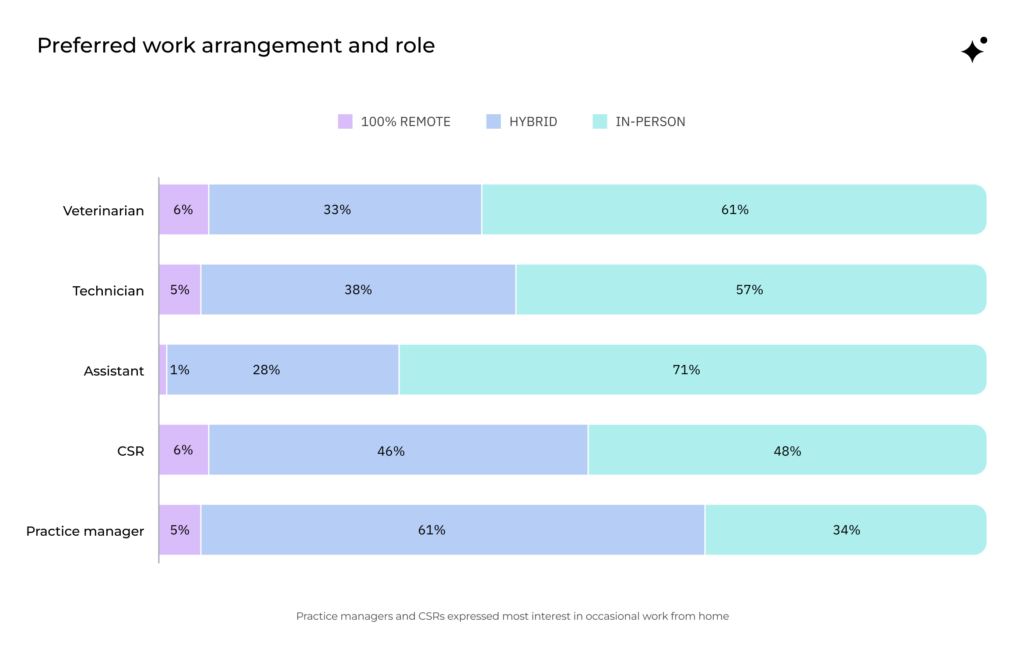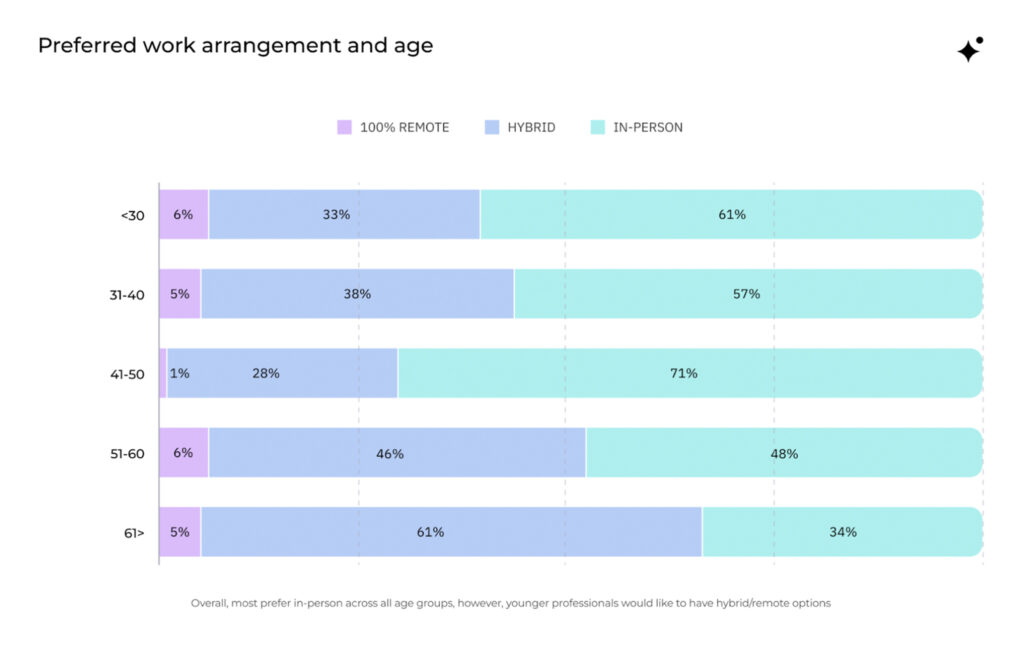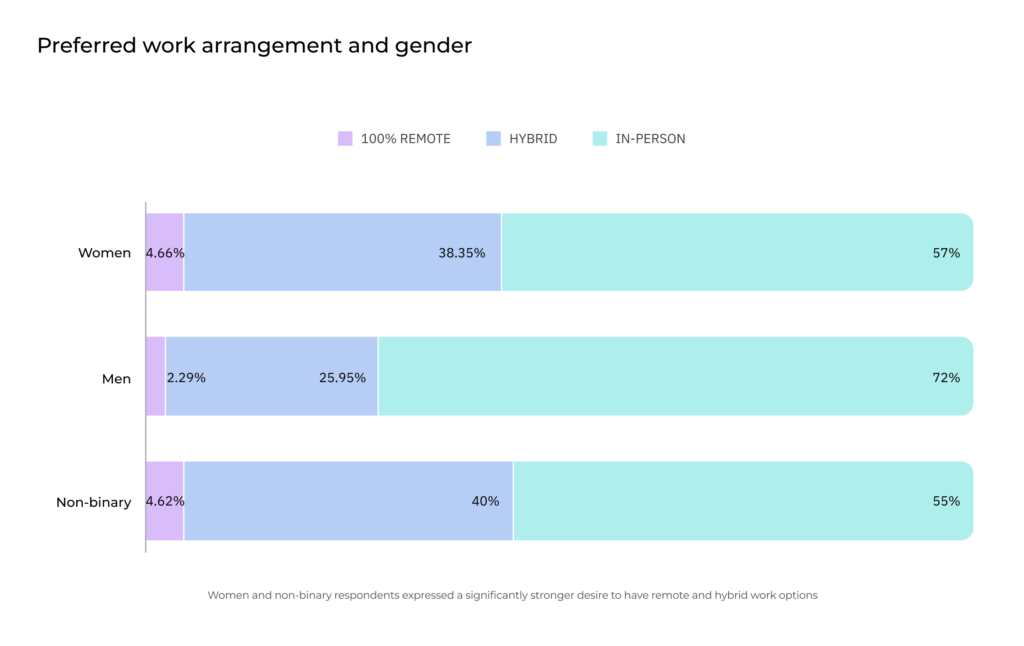Preference for remote and hybrid work arrangements is on the rise
Galaxy Vets, an employee-owned veterinary healthcare system, presented its third annual burnout study. One of its goals was to get insights on what kind of work arrangements veterinary professionals find most appealing and explore opportunities to provide more work-life balance to the veterinary teams. Download the full whitepaper here: https://links.galaxyvets.com/burnoutstudy.
33% of veterinarians and 38% of technicians indicated that they would prefer a hybrid schedule – a mix of in-person and virtual care. The largest number of respondents who would like to have an option to work from home were practice managers and customer service representatives (CSRs) – 61% and 46% respectively.

Further analysis of the slice revealed that younger professionals find remote and hybrid arrangements more lucrative.

There was also a clear difference in gender. More women (38%) said that they would prefer hybrid work arrangements compared to men (26%.)*

*The breakdown is only reported for the groups that had at least 30 responses.
Some of the comments from open-ended questions suggested allowing work from home for administrative tasks, implementing a flexible schedule to better accommodate child care, and the importance of work-life balance for mental health. Such a sizable portion preferring hybrid work arrangement suggests that there may be room for incorporating more flexibility that would allow veterinary staff to provide in-person care as well as work from home.
The study also discovered a correlation between being on call and burnout level. Almost every third respondent was required to be available at least five weeknights/weekends per month. Veterinary professionals who were on call reported higher burnout levels than those who were not. Regardless of whether one was on call a few days a week or on most days, those who worked on call reported higher burnout rates than professionals who were not.
Dr. Ivan Zak, the researcher and Galaxy Vets CEO, commented:
“This suggests an opportunity for wider adoption of telehealth, not just as a means to provide pet owners continuous access to care, but also as a way to offer more flexibility and task variety to the veterinary teams.
Incorporating telehealth can have a number of benefits for team well-being. For example, teletriage – remote assessment of a patient’s condition to determine the care needed and provide assistance with immediate needs – can reduce the workload for on-call doctors, hence alleviating burnout caused by the need to be available outside of the office. Teletriage can be performed by licensed veterinary technicians, giving them an opportunity to work virtually and master a new set of skills. Finally, redirecting medical questions to a teletriage team will take a significant weight off the shoulders of CSRs, one of the most burned-out groups, and add more predictability and control to their busy days. To implement teletriage at your hospital, you can either form a virtual team from your employees who can work partially remotely, or partner with a third-party provider as an extension for your existing staff.”
Download the full whitepaper here: https://links.galaxyvets.com/burnoutstudy.
The study was approved by the Social, Behavioral & Educational Research Institutional Review Board (SBER IRB) of Tufts University, Boston, Massachusetts.
